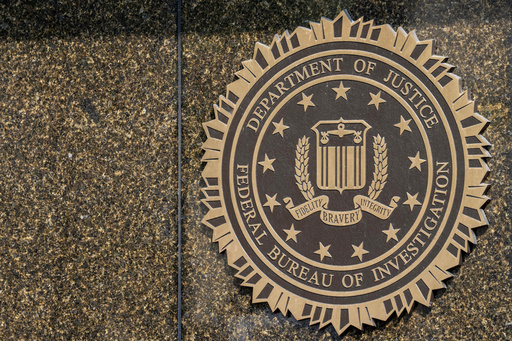
The federal law enforcement and election security agencies in the U.S. are working to disprove new instances of Russian-driven election disinformation just a day before the voting process is set to begin. These incidents demonstrate efforts by foreign entities to create doubt regarding the American electoral system and signal a potential risk of inciting violence towards election officials.
In a statement released late Monday, federal authorities highlighted a recent article circulated by Russian sources that inaccurately claimed U.S. officials in pivotal presidential swing states were orchestrating a fraudulent scheme. Along with this, they mentioned a fabricated video purporting to feature an interview with someone alleging election fraud in Arizona.
U.S. intelligence reports indicate that individuals linked to Russia are producing misleading videos and crafting false articles with the intent to damage the credibility of the upcoming election, instill fear among voters about the election process, and create an atmosphere of political violence among Americans. This was emphasized in a joint statement from the Office of the Director of National Intelligence, the FBI, and the U.S. Cybersecurity and Infrastructure Security Agency. The officials warned that these maneuvers could potentially provoke violence against election workers.
The Russian Embassy has not yet responded to inquiries seeking comment on these claims.
Federal authorities caution that Russia is expected to release more fabricated content on Election Day and stands out as “the most active threat” when discussing foreign attempts to influence U.S. elections. Additionally, they noted that Iran continues to pose a significant risk regarding foreign intrusion into election affairs.
The endeavors outlined by federal officials are part of a broader Russian influence campaign aimed at eroding confidence in the electoral system and catalyzing division among American voters. Intelligence evaluations have suggested that Russia, which previously interfered in the elections to benefit Donald Trump in both 2016 and 2020, appears to favor the Republican candidate again and is anticipated to continue its influence efforts beyond Election Day.
Beyond the creation of misleading videos, U.S. officials have charged Russian state media with running a covert, multimillion-dollar scheme to disseminate pro-Russia content targeting American audiences. They have also taken down numerous internet domains believed to be promoting propaganda.
Federal officials have also shed light on Iranian attempts at election interference, which reportedly include a hack-and-leak operation aimed at undermining Trump’s campaign. In September, the Justice Department filed charges against three Iranian hackers involved in this initiative.
Furthermore, Iranian operatives have set up fake news websites and impersonated activists online in their attempts to influence voters. Analysts from Microsoft have noted that these Iranian actors who previously sent intimidating emails to U.S. voters in 2020 are currently browsing election-related websites and mainstream media outlets, suggesting they may be gearing up for another campaign this year.
As tech giants and intelligence agencies voice concerns over foreign interference in the current electoral cycle, nations such as Russia, China, and Iran have dismissed allegations of their involvement in meddling with the U.S. election.
The Arizona video that Russian figures promoted on social media on Monday claimed to feature an anonymous whistleblower exposing an election fraud conspiracy. Federal authorities stated that the Arizona Secretary of State’s office had already contradicted the claims made in the video.
Earlier this week, U.S. officials confirmed that a separate video that falsely claimed voter fraud in two liberal counties in Georgia was fabricated by a Russian troll farm. In addition, another fake video attributed to Russia depicted someone destroying ballots in what was suggested to be Bucks County, Pennsylvania.
